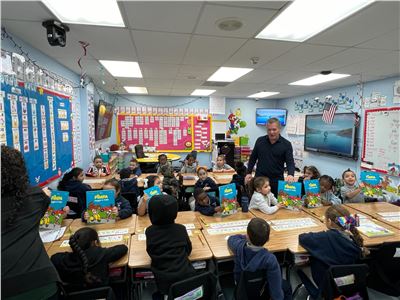Picture by Alex Brandon, AP
The No Child Left Behind Act is a landmark education reform law that improved academic performance across the land. One of its chief aims is to close the troubling achievement gap that separates many disadvantaged, disabled and minority students from their peers.
To do this, it measures student performance and focuses extra resources and attention on those most in danger of falling behind. But what about the schools themselves?
Under No Child Left Behind, schools that receive federal funds to help teach and prepare educationally disadvantaged children must make what is called "Adequate Yearly Progress" in reading, language arts and mathematics. These clearly defined benchmark goals, which will be raised over time, have been put in place by each of the 50 states based upon what is appropriate for their local school districts.
If a school does not reach its annual goals, it is given extra assistance and another chance. If it again does not succeed the following year, the school is deemed "in need of improvement." Extra resources are provided to the school, and new options and choices are provided to its students and parents.
As states release their lists of schools that underperformed over the last school year, parents should be alert to their school's status. They may be eligible for free tutoring or after-school classes for their children, or entitled to choose another public school that better meets their needs.
Parents of children in schools deemed "in need of improvement" should contact their local school officials to find out if their children are eligible for these and other services.
If a school continues to underperform for five or more years in a row, school officials must develop and implement a two-year plan to turn around the school. The local school district will ensure that the school receives needed technical assistance as it develops and implements its improvement plan.
Parents who get involved - by enforcing attendance, supervising homework and setting academic goals - are less likely to see their children left behind in school. Ways that parents can help their child's school succeed include:
* Attending parent-teacher meetings to address academic or discipline problems.
* Participating in school board meetings.
* Volunteering to serve during school hours or in extracurricular activities.
* Encouraging other parents to become involved.
* Tapping into community or private-sector resources.
* Learning about No Child Left Behind and how it can benefit their child.
@robertomasiero










































